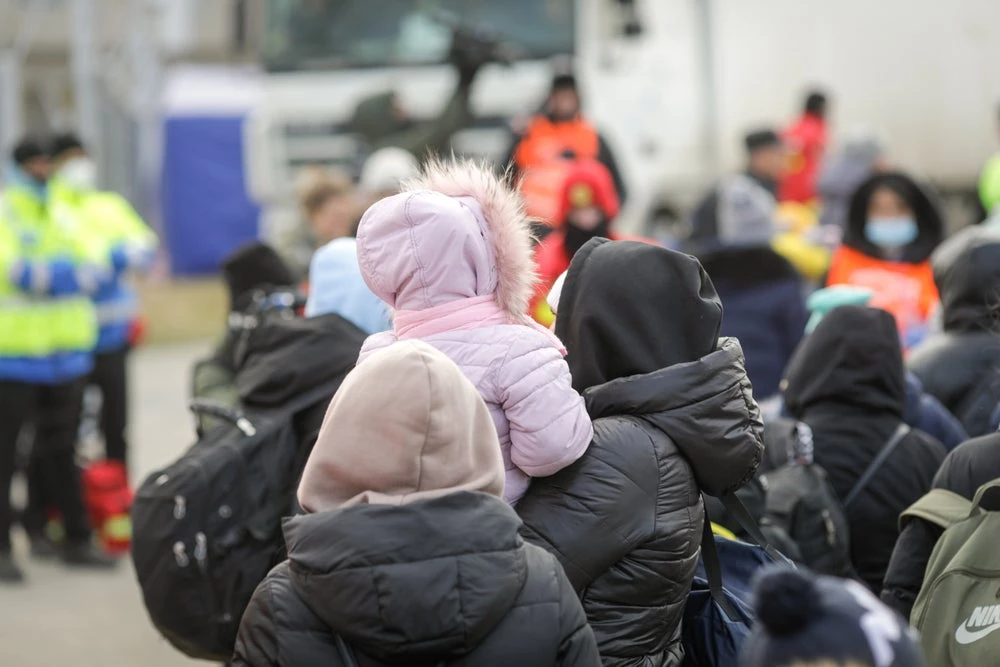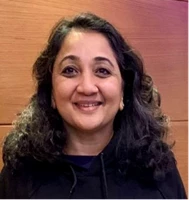 Women facing backwards in Kyiv, Ukraine.
Women facing backwards in Kyiv, Ukraine.
The multilayered crises of climate, conflict, and the COVID-19 pandemic, have undermined the status of women and rolled back decades of progress in many countries, including in the fight against gender-based violence.
Twenty percent of women in Eastern Europe and 18 percent in Central Asia have experienced physical or sexual violence in their lifetime. For example, Bosnia Herzegovina recorded 60 deaths from violence against women since 2015, including 19 brutal femicide cases in 2021 and 2022. In Türkiye, where despite legal reforms such as Turkish Law No. 6,284 modeled on the Istanbul Convention, intimate partner violence (IPV) remains higher than global and regional averages, and 392 women were victims of femicide just in 2022. In Romania, 30 percent of women have experienced either physical or social violence or both by the age of 15, and only 23 percent of the survivors reported the most serious incidents to the police, according to a 2014 EU Agency for Fundamental Rights report. In Italy, 106 women have been killed so far this year, including 55 by their partner or former partner, according to the Ministry of Interior.
The lack of accurate and comprehensive data is still a challenge. Societal norms, fear and stigma, inadequate laws or poor implementation of existing legislation deter survivors from coming forward, contributing to a cycle of silence and underreporting.
Addressing GBV and gender inequality is not only the right thing to do – it is also a smart move. Beyond their devastating impact on the well-being of women, these issues carry a huge economic cost for society. Central Asian countries lose up to 3.7 percent of their GDP to IPV and could significantly increase their GDP growth if women’s rates of employment were equal to men’s. Girls who are married off before 18 are more vulnerable to IPV and less likely to complete their education and enter the workforce. The cost of GBV across the EU is €366 billion a year. Altogether, the ECA region is estimated to have squandered $40-50 trillion in potential human capital wealth from gender inequality over the period 1991-2014, according to a Wodon and De La Briere 2018 study.
Addressing gender stereotypes and pervasive societal norms that tolerate violence against women, legal inequality that perpetuate discrimination against women and girls, and limited access to education and employment are critical first steps to overcoming gender disparities that are devastating for both individuals and countries.
However, persistent levels of GBV and even femicide across the ECA region demonstrate that economic or legislative progress does not automatically translate into gender equality. Data-driven interventions, economic empowerment, and a collective determination to ending gender imbalances are required to dismantle the complex structures that perpetuate GBV.
We are committed to promoting gender equality for a sustainable, resilient, and inclusive future for the ECA region – in line with the objectives of the World Bank 2024-2030 Gender Strategy to end GBV, elevate human capital, and expand economic and leadership opportunities for women.
As we strive for a more sustainable world, free of poverty, on a livable planet, we know that women do better and thrive in societies that are more peaceful, democratic, and prosperous. The UN’s call to "UNITE! Invest to prevent violence against women and girls" echoes the need for collective and sustained efforts to drive policy and societal changes, and challenge the status quo that perpetuates GBV.
Amid global crises, we must foster a future where women, released from the persistent threat of violence, can reach their potential and thus contribute fully to the long-term prosperity and security of their countries.




Join the Conversation